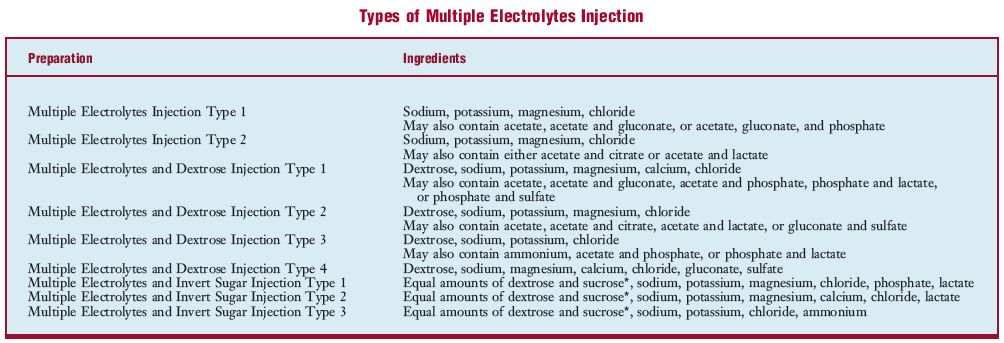* * *
1. Any compound that, in solution or in molten form, conducts electricity and is decomposed (electrolyzed) by it. 2. An ionizable substance in solution. [electro- + G. lytos, soluble]
- amphoteric e. an e. that can either give up or take on a hydrogen ion and can thus behave as either an acid or a base. SYN: ampholyte.
* * *
elec·tro·lyte i-'lek-trə-.līt n
1) a nonmetallic electric conductor in which current is carried by the movement of ions
2 a) a substance (as an acid, base, or salt) that when dissolved in a suitable solvent (as water) or when fused becomes an ionic conductor
b) any of the ions (as of sodium, potassium, calcium, or bicarbonate) that in a biological fluid regulate or affect most metabolic processes (as the flow of nutrients into and waste products out of cells) used esp. in biology and biochemistry
* * *
n.
a solution that produces ions (an ion is an atom or group of atoms that conduct electricity); for example, sodium chloride solution consists of free sodium and free chloride ions. In medical usage electrolyte usually means the ion itself; thus the term serum electrolyte level means the concentration of separate ions (sodium, potassium, chloride, bicarbonate, etc.) in the circulating blood. Concentrations of various electrolyte levels can be altered by many diseases, in which electrolytes are lost from the body (as in vomiting or diarrhoea) or are not excreted and accumulate (as in renal failure). When electrolyte concentrations are severely diminished they can be corrected by administering the appropriate substance by mouth or by intravenous drip. When excess of an electrolyte exists it may be removed by dialysis or by special resins in the intestine, taken by mouth or by enema. See also anion.
* * *
elec·tro·lyte (e-lekґtro-līt) [electro- + Gr. lytos that may be dissolved] a substance that dissociates into ions when fused or in solution, and thus becomes capable of conducting electricity; an ionic solute.
*Or an equivalent solution produced by hydrolysis of sucrose.
Medical dictionary. 2011.